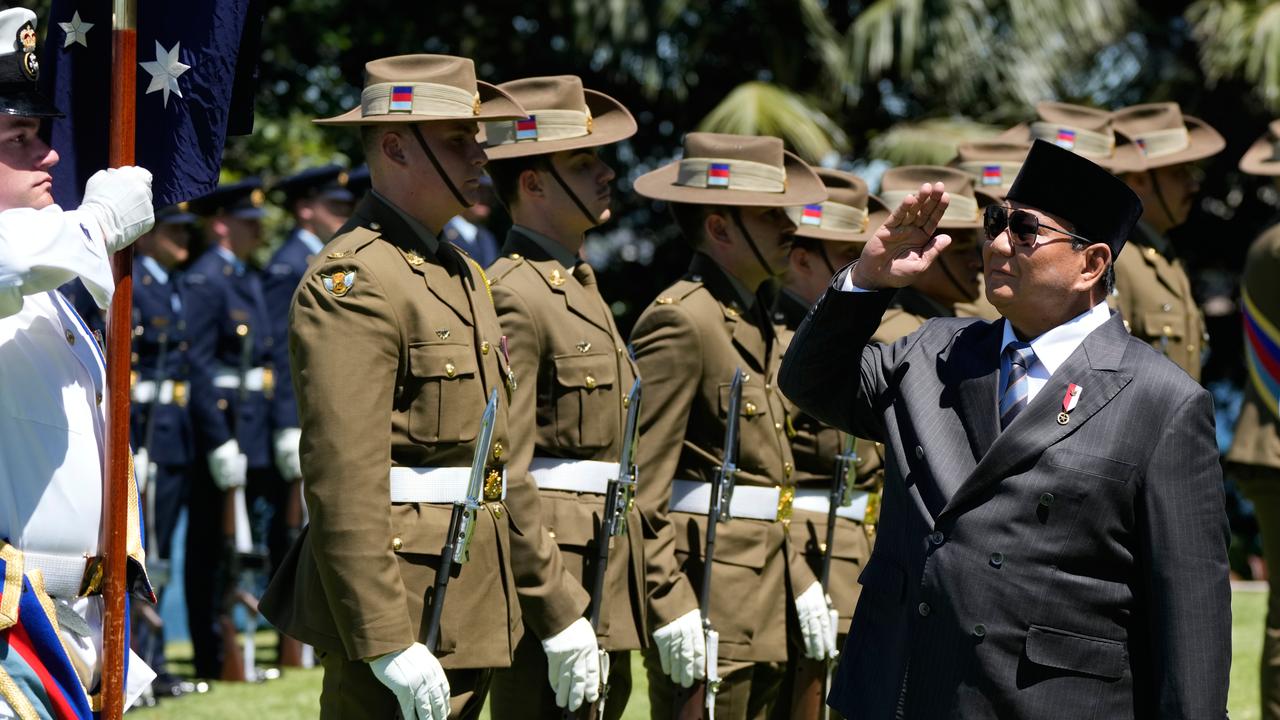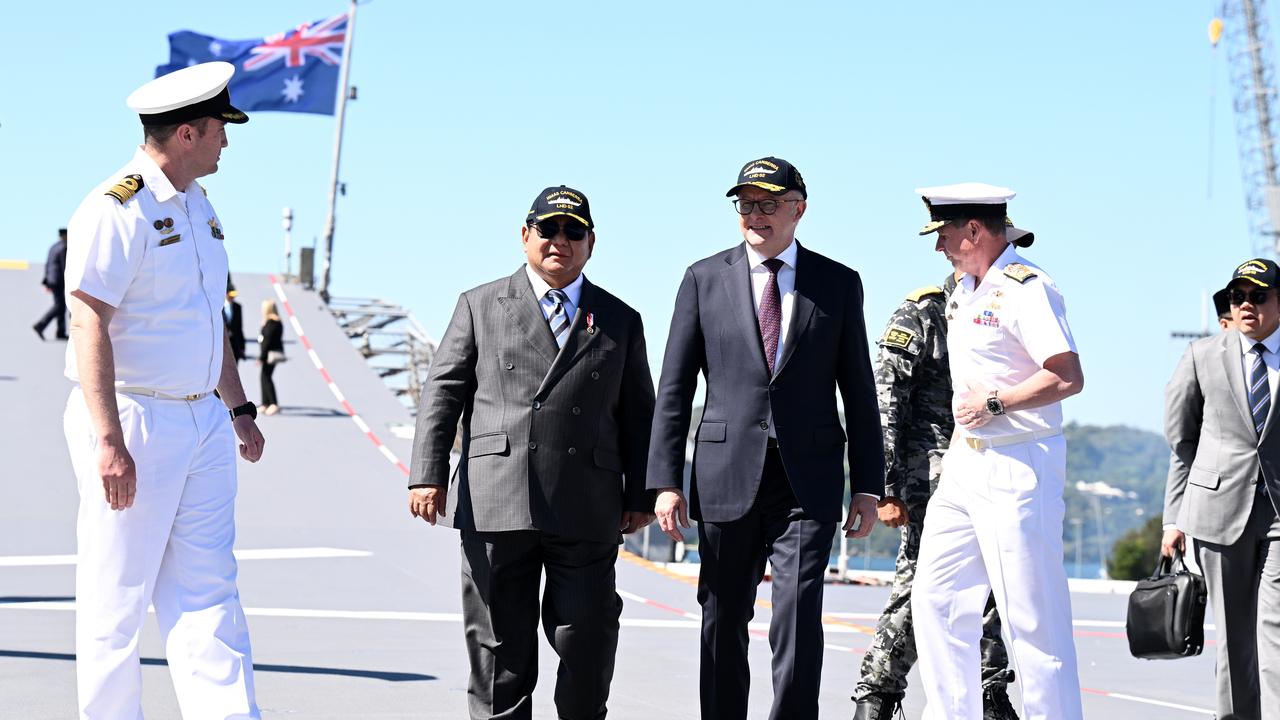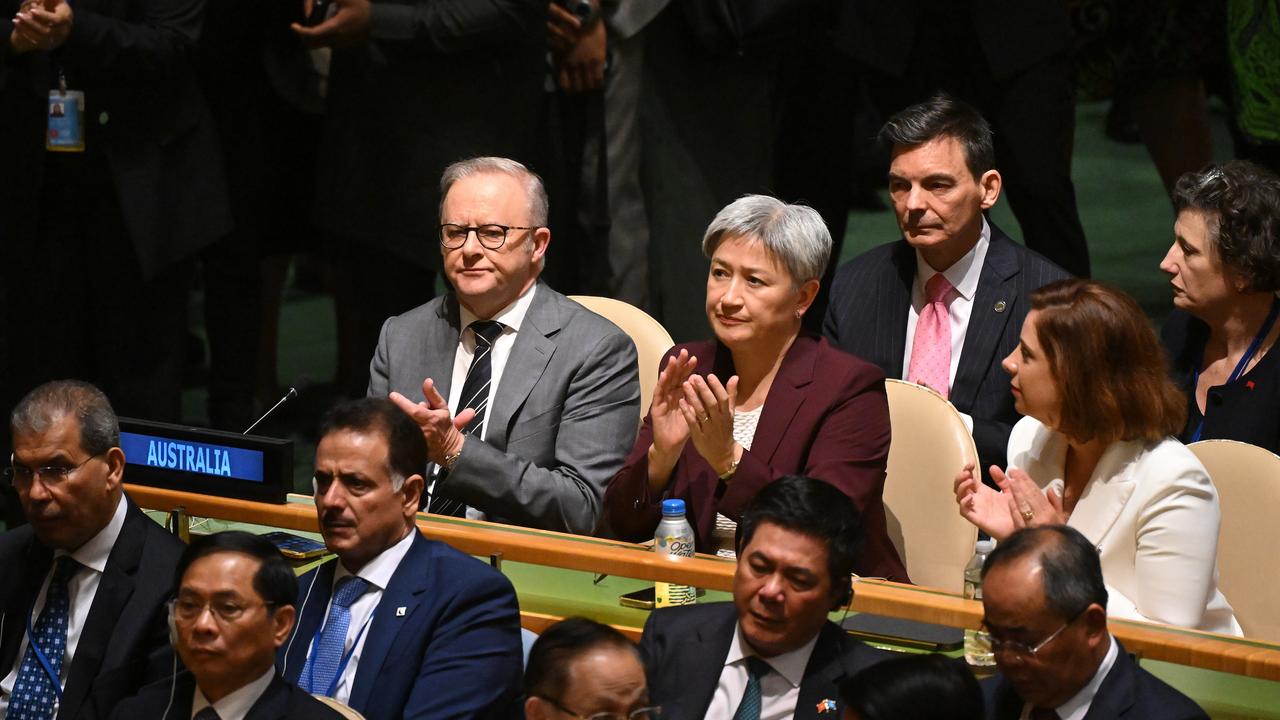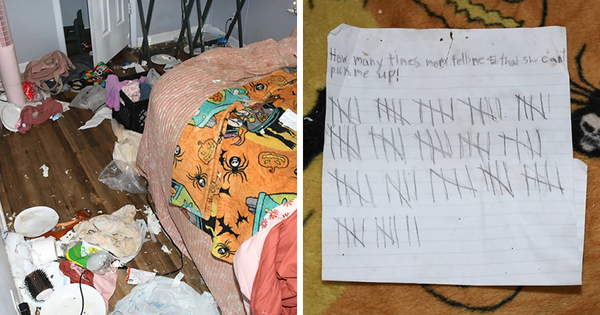
A security agreement struck by Australia and Indonesia is a significant elevation of the two neighbours' relationship but will not bind either to fight in each other's defence.
Prime Minister Anthony Albanese and Indonesian President Prabowo Subianto on Wednesday announced the end of negotiations, with the agreement scheduled to be formally signed in January.
Mr Albanese said the deal committed the nations to consult regularly on matters of security, and consider possible measures should either's security be threatened.
While Foreign Minister Penny Wong was scant on detail when questioned about the scenarios that could trigger Australia into action under the deal, one expert says the agreement does not make the nations allies in defence.

"It's not a mutual defence treaty similar to what we have with the United States and now with Papua New Guinea, but it sits at the category just below that," ANU National Security College senior policy advisor David Andrews told AAP.
"It doesn't require us or Indonesia to fight in someone else's war.
"What we're looking at is a bilateral security treaty, which is an elevation of that relationship to an even higher tier.
"It's a great marker of success for Australian diplomacy."
When pressed for details on the agreement, Senator Wong told Nine's Today program that having good relationships with neighbours "helps keep Australia secure".
"I'm not going to go through what might happen here or there in terms of hypotheticals or specifics," she said.
Negotiations were kept under wraps, with the prime minister first indicating to Mr Prabowo during a visit to Jakarta in May that he wanted to strengthen the Defence Co-operation Agreement the nations signed in 2024.
Talks between the neighbours concluded during the Indonesian president's whirlwind visit to Sydney on Wednesday.
Mr Prabowo met with former prime minister Paul Keating shortly after the announcement.
The agreement is likely to be slightly wider in scope than the high-water mark of the former sweeping security treaty signed by Mr Keating and Mr Prabowo's former father-in-law Suharto in 1995, Mr Andrews said, as security issues have become much more substantial since then.

"We're in a very tricky state of affairs right now with Russia's invasion of Ukraine, talk of conflict between China and Taiwan and North Korea doing additional nuclear tests," Mr Andrews said.
"On top of that, you have things like climate change, mass migration and conflict over resources.
"Security isn't just defence and hard power."
The deal comes off the back of the PukPuk treaty Australia signed with Papua New Guinea in October that ensures mutual defence between the Australian Defence Force and PNG military.







